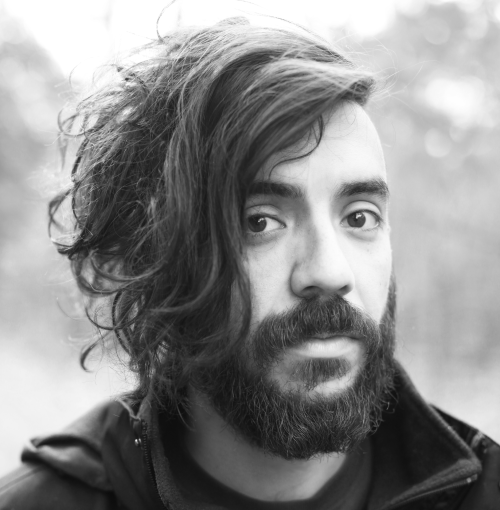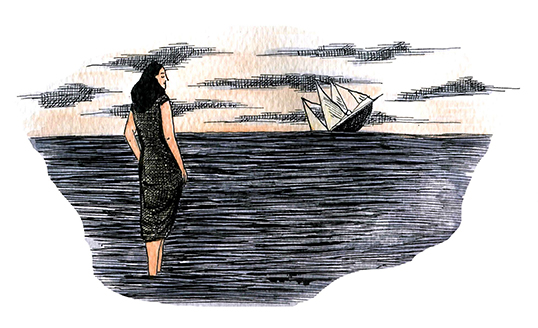—Bakhit Bakhit and Aron Aji
In your translators’ note above, you mention your “two discrete translation processes” that work together to produce a single translation. Can you describe the different approaches you take to the text, and how you were able work together to produce this translation?
Bakhit is the one who knows the poet, the poem, its aesthetic and socio-cultural context. Our collaboration begins after Bakhit completes a relatively advanced draft; then Aron enters into the process, silently reading the poem while listening to Bakhit read the original in Arabic; Aron marks the translation according to the rhythms and sounds he hears in Bakhit’s reading, in places where the Arabic feels more resonant, more charged. What follows is a rich conversation about individual words, lines, etc., in order to tease out this “charge.” Some inevitable semantic revisions notwithstanding, our conversation is about carrying into English the subtler, less intellectual, more intuitive aspects of the original, what belongs not so much to the body of the poem, but maybe to its soul.
Can you talk about your decision to leave the words al-samandel and hijra wal awda in Arabic?
We preferred keeping the Arabic phrase hijra wal awda to counteract the negative reception of the words, immigration and immigrant, nowadays. In Abd Alhai’s poem, immigration as hijra is always attached with return as al-awda. It is a journey where the immigrant always comes back after attaining self-knowledge and knowledge of his/her roots. Coming back may not always mean physical return to the homeland. But it always means growth, recognition, wisdom that has to do with a reconciliation with, a consummation of the past. He may be welcome with songs and celebrations or he may die with honor, “if lost in his inclination to the sea ….”
As for al-samandel, the English translation is “salamander” but does not necessarily carry the mythic resonance that Al-Samandel does.
In these instances, we were not deliberately trying to be foreignizing or to provide a cultural flavoring. Rather, both hijra wal awada and al-samandel are meant to function like windows through which the sincerely curious reader will look and find out much that would have otherwise seemed lost.
What do you see as Abd-Alhai’s contribution to the conversation on banned countries, given that he wrote in a different time and context?
The “Inclination to the sea” is about the nomad condition—whether of the hero, the immigrant, or the refuge—which lies at the heart of Homer’s The Odyssey as it does of Abdl-Alhai’s poem, which, in fact, directly engages the classical epic. The woman at the loom may be Penelope or Fatima, but also represent homeland, a place of real or imaginary return.
Find Mohamed Abd Alhai’s poem “Al-Salmandel at the Edge of Absence” in Bakhit Bakhit and Aron Aji’s translation here, where you can also listen to Bakhit Bakhit’s reading of the poem in the original Arabic.




